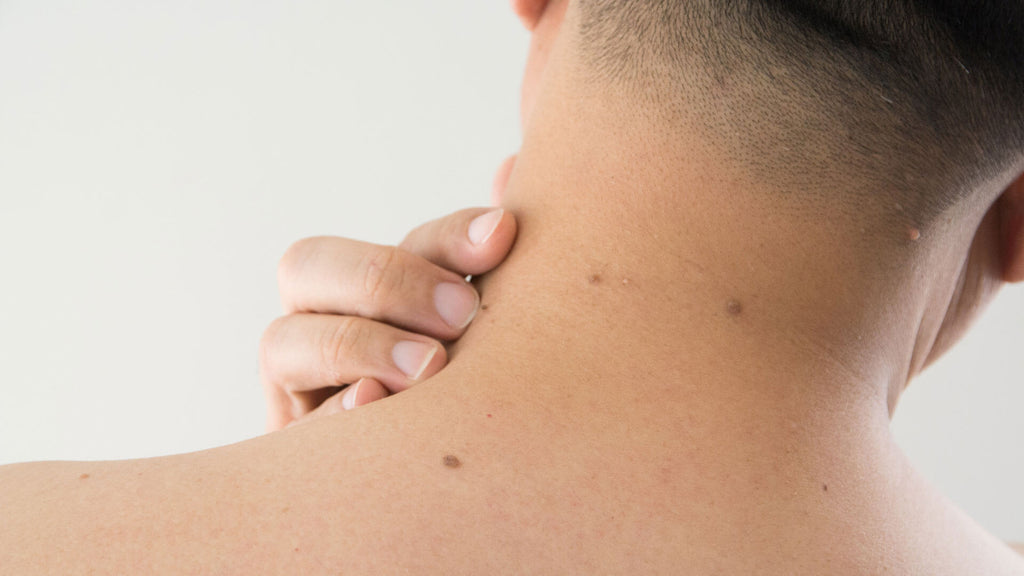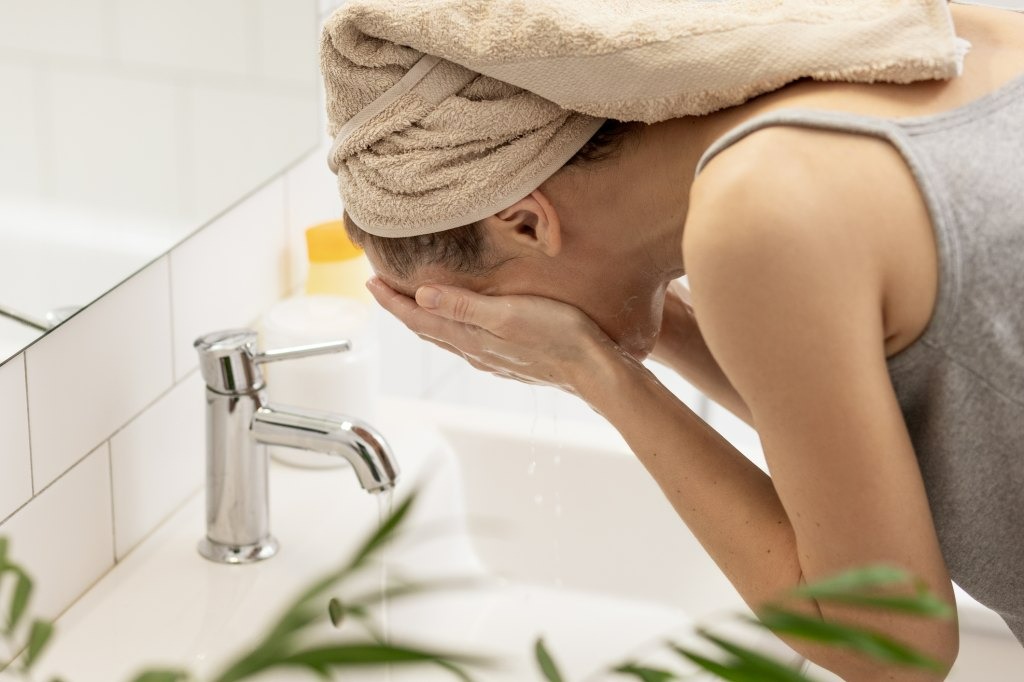Skin concerns such as warts, moles, skin tags, acne, and age spots are frequently encountered and can affect confidence and overall well-being. While dermatological treatments are widely available, many individuals seek natural approaches to skincare. This article explores evidence-based, dermatologist-recommended strategies and natural remedies that can support healthy skin, while adhering strictly to verified information and avoiding speculative or unsafe advice.

Understanding Common Skin Issues
Before exploring natural care options, it’s important to understand what these skin conditions are and what causes them. Reputable sources, including the American Academy of Dermatology (AAD), provide the following definitions:
-
Warts: Non-cancerous skin growths caused by certain strains of the human papillomavirus (HPV) (AAD†source).
-
Skin Tags: Small, benign growths of skin that often appear in areas of friction such as the neck, underarms, or eyelids (Mayo Clinic†source).
-
Moles: Typically benign clusters of pigmented cells that can appear anywhere on the skin (CDC†source).
-
Acne (including blackheads and pimples): A skin condition that occurs when hair follicles become clogged with oil and dead skin cells (NIH†source).
-
Age Spots: Also called liver spots, these are flat, dark areas on the skin caused by sun exposure and aging (FDA†source).
Natural Ingredients Backed by Research
Some natural ingredients have been evaluated in scientific studies or cited by dermatologists for their skincare benefits. Below is a breakdown of natural options with supportive evidence.
1. Tea Tree Oil for Skin Tags and Acne
Tea tree oil contains terpinen-4-ol, which has documented antimicrobial and anti-inflammatory properties. According to the National Center for Complementary and Integrative Health (NCCIH), it may be useful in managing mild acne (NCCIH†source).
-
Usage: Apply diluted tea tree oil (never undiluted) using a cotton swab on skin tags or acne-prone areas. Perform a patch test first to avoid irritation.
-
Note: This remedy is not approved by the U.S. Food and Drug Administration (FDA) for the removal of skin tags, and professional guidance is advised for persistent growths.
2. Apple Cider Vinegar (ACV) for Warts and Acne
ACV contains acetic acid, which may have antibacterial effects. Some anecdotal evidence supports its use for managing mild skin conditions, but major health agencies do not officially recommend it for wart removal due to the risk of skin irritation or burns.
-
Usage: ACV can be diluted with water (1:3 ratio) and applied as a facial toner for acne-prone skin. Avoid use on broken or sensitive skin.
-
Warning: The AAD and Mayo Clinic do not recommend using ACV to treat warts or moles due to the potential for skin damage. Consult a dermatologist instead (AAD†source).
3. Lemon Juice for Age Spots
Lemon juice contains natural citric acid, which may help with mild exfoliation. However, dermatologists warn that lemon juice can make skin more sensitive to sunlight and may cause irritation or chemical burns if not used correctly.
-
Usage: Use only under professional supervision. A safer alternative is vitamin C serum, which has been clinically shown to help brighten skin and reduce hyperpigmentation (Journal of Clinical and Aesthetic Dermatology, 2017†source).
4. Coconut Oil as a Moisturizer
Coconut oil has emollient properties and can help hydrate dry skin. It also contains lauric acid, which may have antibacterial benefits.
-
Usage: Apply a thin layer after cleansing. Suitable for dry or normal skin types, but may not be ideal for acne-prone skin due to its comedogenic rating (Dermatology Times†source).
5. Steaming and Gentle Exfoliation for Pores and Blackheads
Steaming helps open up pores temporarily, allowing for gentle cleansing and removal of debris. However, steaming should not be overdone, as excessive heat can irritate the skin.
-
Usage: Steam for 5–10 minutes once a week, followed by a gentle exfoliator and a hydrating moisturizer. Avoid aggressive scrubbing, which can damage the skin barrier (AAD†source).
Why You Should Not Self-Treat Moles or Growths
Medical experts strongly advise against removing moles or skin tags at home, especially if they change in shape, size, or color. Such symptoms could indicate skin cancer, including melanoma.
-
Professional Evaluation Recommended: The American Cancer Society emphasizes that any new or evolving skin growths should be evaluated by a licensed dermatologist (ACS†source).
When to See a Dermatologist
While some natural remedies can support healthy skin, professional diagnosis and treatment are essential when:
-
A skin condition worsens or does not improve within a few weeks.
-
There are signs of infection (swelling, pus, redness).
-
Moles appear asymmetrical or multicolored.
-
Warts, skin tags, or other growths are painful, bleeding, or rapidly changing.
Evidence-Based Prevention Tips
The best way to reduce skin concerns naturally is to adopt a holistic skincare routine. The following lifestyle practices are endorsed by dermatologists:
-
Daily sun protection: Use broad-spectrum sunscreen (SPF 30 or higher) to prevent age spots and sun damage (FDA†source).
-
Gentle cleansing: Avoid harsh scrubs and use non-comedogenic products.
-
Healthy diet: A diet rich in fruits, vegetables, and hydration supports skin function.
-
Stress management: Chronic stress can worsen acne and other skin issues (NIH†source).
-
Consistent routine: Natural ingredients require time and consistency to show effects.
Conclusion
Natural remedies can play a supporting role in skin health, but not all treatments promoted online are safe or effective. Ingredients like tea tree oil, diluted apple cider vinegar, and coconut oil may be beneficial for minor skin concerns if used properly and cautiously. However, any persistent, painful, or unusual skin growths should always be evaluated by a medical professional.
Following expert-backed skincare advice and consulting licensed dermatologists ensures both safety and effectiveness in treating skin issues. Rather than relying solely on DIY treatments, consider combining natural methods with evidence-based medical care for optimal skin health.

Sources:
-
American Academy of Dermatology (www.aad.org)
-
Mayo Clinic (www.mayoclinic.org)
-
National Center for Complementary and Integrative Health (www.nccih.nih.gov)
-
U.S. Food and Drug Administration (www.fda.gov)
-
Centers for Disease Control and Prevention (www.cdc.gov)
-
American Cancer Society (www.cancer.org)
-
Journal of Clinical and Aesthetic Dermatology




